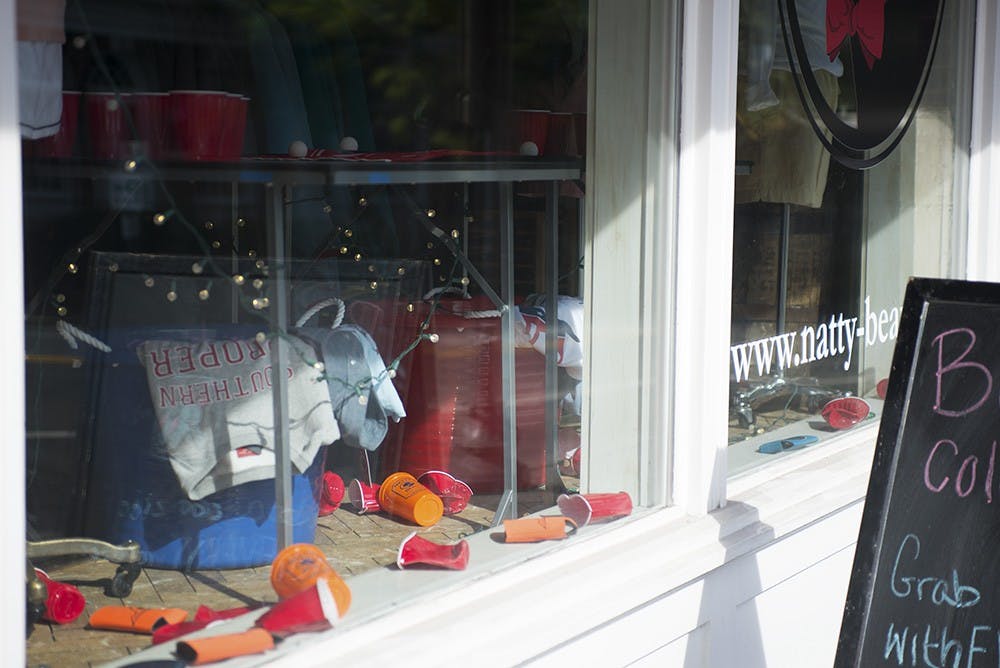Retail store Natty Beau, a recent addition to the string of shops in the Corner area where many students eat and socialize, currently has a window display meant to entice its young clientele, featuring crumpled red solo cups scattered along the floor under its mannequins.
The display itself is tongue-in-cheek and a clever marketing tool for college students just back from the summer and eager to enjoy the freedom college offers, among them access to alcohol and parties. But the display also demonstrates a cavalier attitude about alcohol consumption that is particularly ill-timed — especially as it coincides with the release of a mandatory alcohol abuse prevention module and a time period known as the “red zone,” the period in the first six to 10 weeks of schools during which most sexual assaults occur on college campuses.
With the start of the school year, the University has taken a proactive step to ensure incoming students can educate themselves on the dangers of alcohol abuse. Especially for incoming first-year students, college drinking may be significantly different from whatever exposure they have had to alcohol in high school. To see careless drinking glorified and marketed undermines the lessons the alcohol abuse module aims to offer: that drinking should be done safely, and that it needn’t be done recklessly.
While glorifying reckless drinking is by no means glorifying sexual assault, there is no denying that there is an association between the two, and that first-year women may be especially vulnerable in the context of a party similar to the one Natty Beau’s window display imitates.
Of course, this individual store’s display does not singlehandedly create a culture of reckless drinking; it is arguably a response to a culture that’s already there. But this year, many stores on the Corner are participating in the University’s “Hoos Got Your Back” campaign, aimed at increasing bystander intervention and keeping University students safer. It is commendable for private businesses that cater to students to take a stronger role in spreading awareness of issues they may face and to coordinate with the University to do so. With this increased coordination, stores that ignore the social responsibility that accompanies corporate responsibility stand out. Many of the stores on the Corner are making efforts to spread positive messages about how students can care for one another; this is a culture we should support.
At a school that has received excessive scrutiny for its party culture and that is making good faith efforts to ensure a safer environment and safer habits for its students, we are forced to ask ourselves: how much has changed, and how much can change? Certainly issues of safety extend beyond just what our administration or eager school groups can offer, and places capitalizing on binge-drinking do not help this cause.







